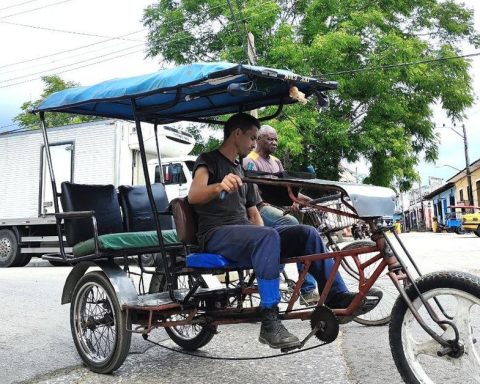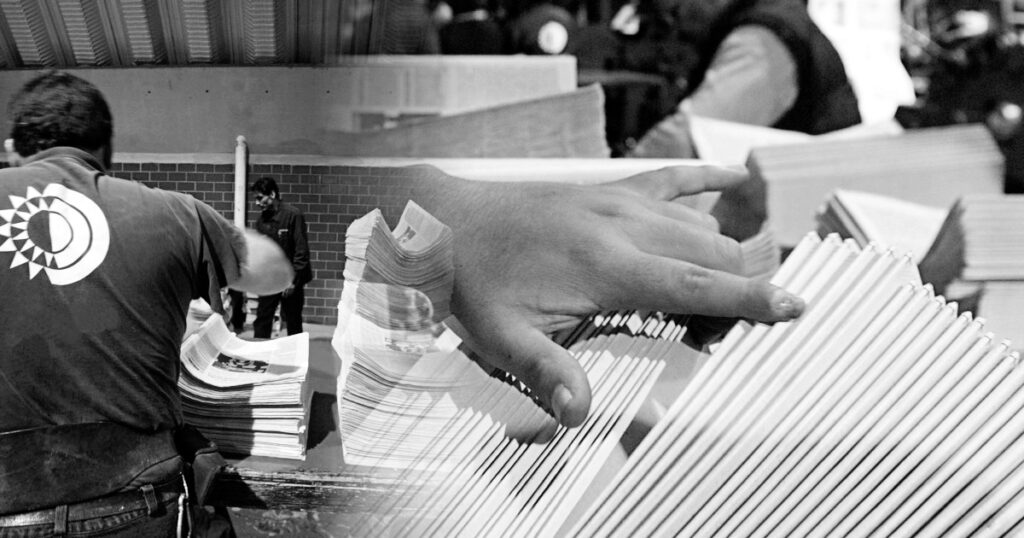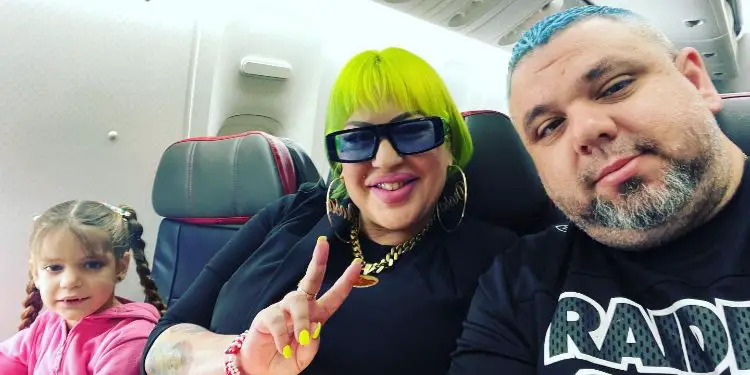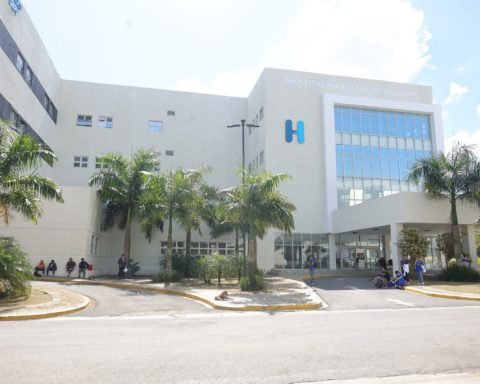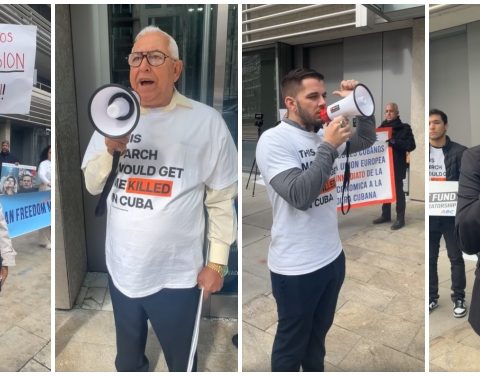First you have to find the product in the innumerable Facebook groups, then distinguish between wholesale sales and those more adjusted to the quantities for a family and then ask how much the merchandise costs, because the ad does not clarify. “Prices, to the private,” is the invariable answer given by more and more merchants in Cuba.
“He lends himself to anything,” says Niurka Valle, a 37-year-old from Havana who denounces 14ymedio the lack of protection you experience as a customer from price secrecy. “I frequently buy in groups where not only people from the black market sell but also paladares and MSMEs”, details. “That vice of ‘private prices only’ is already everywhere.”
“A few days ago I needed to buy some juices. The first frustration is that now many merchants sell wholesale, by pallet [plataformas que se utilizan para agrupar, almacenar y transportar mercancías ya embaladas] What family can buy a pallet of something?
In this case and other previous ones, the goods that caught Valle’s attention were part of the products that were for sale under the new form of management in which the Cuban government has placed, at least in public discourse, its hopes of refloating national commerce and services: micro, small and medium-sized companies (MSMEs).
“There are days when we wake up with a price and in the afternoon it gives us losses because of the cost of raw materials, the low value of the Cuban peso and other factors”
“I am not talking about someone who knocks on your door and offers you a pound of powdered milk and does not have a license, but about a company that must respect the laws and that has been given the opportunity to import goods [a través de entidades estatales] It’s so that he doesn’t do tricks, so that he gives all the information to the consumer”.
Although Resolution 54 of the Ministry of Domestic Trade establishes that prices must be displayed “in a visible place” and the “electronic commerce” regulations in force in the country require “transparency”, each time the phenomenon that Valle recounts is more frequent, to the point that many buyers go directly to a private courier service to obtain more information about the products on sale.
The administrator of one of the more than 6,000 MSMEs that there was at the end of last year on the Island explains to this newspaper the reasons for hiding prices. “It’s not that we want to deceive the customer and tell one price and the other double,” says Lisandro, 52, whose name has been changed in this note to protect his business.
“There are days when we wake up with a price and in the afternoon it gives us losses because of the costs of the raw material, the low value of the Cuban peso and other factors such as the increase in the cost of home delivery due to the ups and downs in the fuel supply. and other unpredictable events force us to do that,” he says.
“I can’t put a photo of a beer and soft drink combo at a price that a few hours later I have to change again because they don’t give the accounts with that,” he says. “There is advertising that we have done for those digital sites that if they had the price included in the image, they would have to be changed every day.”
“Imagine that I did a very nice advertisement for a service to install aluminum marquetry and I put clearly how much it costs, but next week the technician I have hired for the installation tells me that he no longer works for that payment,” he speculates. “Then I have to change everything and there will be customers who come across the image with the old price and demand to pay only that.”
A problem like the one posed by Lisandro would not be conceivable in a free market system, because supply and demand are predictable over time and planning can be done based on them, but not in a model where almost esoteric variables are involved.
“Although I do my tax returns in Cuban pesos, I cannot charge many of the medical services in that currency because what I offer is imported”
One of them is the possible punishments that entrepreneurs can receive if the authorities find out how much they charge for their services or in what currency they do so. “We have a license, but if I write on my business website that I charge $15 for each hexavalent vaccine I inject a dog with, I risk a fine and having my license taken away,” admits a veterinarian who consults with address.
“Although I do my tax returns in Cuban pesos, I cannot charge many of the medical services in that currency because what I offer is imported and my contacts abroad have to buy it in foreign currency,” he concludes. “I cannot put vaccines in national currency because that only gives me losses.”
The rule among these entrepreneurs is “never respond to the interested party with the price in a public message because that leaves a trace,” adds the veterinarian. “The entire agreement must be made by private messaging because then it is only the client’s word against mine, but it is not the same as everyone who wants to be able to see what we exchange.”
Hiding prices is not just a practice of individual merchants. State or mixed companies, such as Havanatur and Cubatur frequently promote tourist packages for national clients without specifying the amount per person or group. While the offers for the international market do enjoy transparency, for Cubans they are not so clear.
“How much does the double room cost with all-inclusive?” asked a client of Cubatur’s Facebook page this week who demanded that the prices of a tourist package to Cayo Largo del Sur be stated. “Call 45-614405,” the account manager replied. “But why do I have to call? Can’t they post here what it costs?” the Internet user added uneasily.
The helplessness of the client in the face of price secrecy becomes more dramatic when the amounts reach three or four figures. “Packages to Guyana, Managua and Suriname. Competitive prices,” reads an advertisement in one of the many Facebook groups that promote this type of shopping trip or for immigration purposes. It is enough for someone to inquire about the details so that they invariably receive the expected response “private prices”.
________________________
Collaborate with our work:
The team of 14ymedio He is committed to doing serious journalism that reflects the reality of deep Cuba. Thank you for accompanying us on this long road. We invite you to continue supporting us, but this time becoming a member of our newspaper. Together we can continue transforming journalism in Cuba.



